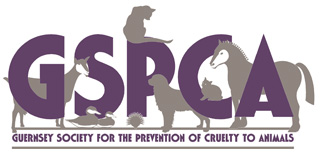- Home
- About
- 24 hour Emergency Wardens
- Animal Welfare
- Animal friendly hotels
- Awards & Recognition
- Corporate and group days
- Dog Fouling
- Dog Friendly Pubs
- Dogs Barking
- GSPCA Committee
- GSPCA Membership, Rules, News and Accounts
- GSPCA Opening & Visiting Times
- Gert the GSPCA Duck - Fun for kids
- Guernsey Animal Law
- Guernsey Dog Tax Law
- Our Team
- Privacy Policy and Cookies Policy
- Restrictions on Beaches in Guernsey
- St Andrews Floral Group & Conservation Work
- Stray Cockerels & Hens
- Surveys
- Terms & Conditions
- Transporting animals in and out of Guernsey
- Vacancies
- Volunteers
- Services
- Adoption costs at the GSPCA
- Birthday or Special Guided Tours at the GSPCA
- Boarding Facilities
- Cat Adoption
- Choosing a Puppy
- Comments & Feedback
- Dog Adoption
- Dog Behaviour
- Dog Training
- Education and Schools
- Fostering Scheme
- Lost & Found Advice
- Microchipping only £4.99 & advice
- Pet Bereavement Advice Page
- Pet Cremation Services
- Pet supplies and products on sale
- Room hire at the GSPCA
- Training & Courses
- Vote for a staff member or volunteer
- Animals
- Gallery
- Support Us
- Shop
- Blog
- Links
- Contact
The right pet for you?
Guinea pigs are friendly and easily tamed, but they need commitment and regular attention. Long-haired guinea pigs can be especially difficult to look after.
What do guinea pigs need?
- Companionship - to be with other guinea pigs. The widespread practice of keeping guinea pigs and rabbits together is not recommended.
- Feeding twice a day, with a mixture of meadow hay, green stuff, pellets, washed fruit and vegetables.
- A constant supply of fresh, clean drinking water in a drip feed bottle with a metal spout.
- A large weatherproof home kept off the ground, out of direct sunlight and strong winds. It should be moved to an indoor area or porch in cold weather.
- A separate sleeping area for each animal inside the home.
- A clean layer of wood chippings on the floor of their home and plenty of soft hay for bedding and burrowing.
- Daily exercise in a grassy area safe from predators and an indoor run in cold weather.
- Their home to be cleaned every day and bedding changed weekly.
- A gnawing block to wear down long teeth.
- To be brushed every day if they have a long or rough-haired coat.
- Some quiet time alone or with other guinea pigs every day.
- To be taken to a vet if they are ill or injured.
- To be looked after when you are on holiday.
Life Span - Guinea pigs can live up to seven years.
Behaviour - In the wild, guinea pigs live in close family groups, and it is unkind to keep one guinea pig. Companionship is essential, but two adult guinea pigs that don't know each other may fight, so choose two young littermates of the same sex, a father and son, or mother and daughter. Guinea pigs have a basic need to graze and should have regular access to a grassy area. Guinea pigs also need to have their own sleeping area.
Handling - Approach the guinea pig from the front and on its level. Pick it up using both hands, one around the hindquarters, the other around its shoulders (for a young guinea pig) or around its chest (for an adult). Guinea pigs may become upset by too much handling.
Breeding - The GSPCA strongly advises that you do not breed from your guinea pigs as it is very difficult to find good homes for the young. The best way to ensure that guinea pigs do not breed is to neuter your Guinea Pigs or keep males and females apart.
A female guinea pig can produce up to five litters a year from a very young age.
Health - Guinea pigs should be checked regularly for overgrown claws and teeth. Both should be trimmed by your vet.
Too much scratching results from skin problems and is often caused by mites or lice. Your vet can provide suitable treatment for these.
Long-haired guinea pigs in particular may suffer from the potentially fatal disease flystrike, caused by flies laying eggs in soiled fur. Make sure the guinea pigs' home is cleaned every day and bedding changed regularly. Groom guinea pigs every day, checking their fur all over for any dirt, especially under the tail.
If a guinea pig develops bald patches on its face, this could indicate the fungal disease ringworm. Seek veterinary advice straight away.
Guinea pigs can suffer from vitamin C deficiency, which causes weight loss, general weakness and swollen joints. Ask your vet for advice on how to provide your guinea pigs with an adequate supply of this vitamin.



